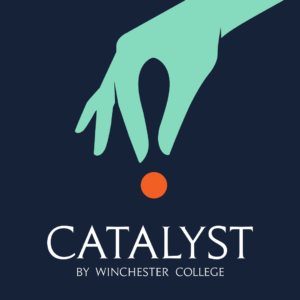In a nutshell, the International Baccalaureate diploma programme (IBDP) is better at encouraging a “global outlook and independent inquiry” in students, while A-levels give students more “detailed and in-depth” expertise.
Comparison Chart
|
|
A Level |
IB Diploma |
|
What is the major difference between A-Levels and IB? |
Most students study 4 subjects in Year 12, with some reducing to 3 subjects (minimum university requirement) by Year 13.
|
Students will study 6 subjects over two years: 3 at Higher Level and 3 at Standard Level. In addition, each student will complete an Extended Essay (EE), a Theory of Knowledge course (TOK) and the CAS programme (Creativity, Action and Service). |
|
How do the examinations work? |
The exams of most subjects are at the end of the second year.
|
In addition to coursework, the IBDP is examined at the end of the final high school year (Grade 12/ Year 13).
|
|
How are subjects chosen? |
A-Levels students have a free choice of subjects, although a sensible combination of subjects is usually chosen based on their proposed university degree, interests and abilities (IGCSE results). |
IB students study:
3 of the above subjects are at Higher Level and 3 at Standard Level. |
|
How do universities regard A-Levels and IB? |
Universities are very familiar with the A-Levels. University offers are usually based on 3 subjects.
Typical offers from top universities are between A*AA to AAB. |
Universities are very familiar with the IB.
Typical offers from prestigious universities will be between 38-42 points, and may include a 6 or a 7 in the subject to be studied at university.
|
|
Are both pathways suitable for courses such as Medicine? |
Students are expected to have studied Chemistry and a second Science subject (Biology preferred) or Mathematics to A-Levels. Some medical schools prefer a subject outside the sciences as the remaining subject. Some will require Biology and Chemistry. |
Students are expected to have studied Chemistry and Biology at Higher Level (although Maths Higher Level is also acceptable). The breadth of the IB means all students can offer a Humanity and Languages in addition to Science subjects. |
|
How is the qualification graded? |
The A-Level is graded on a scale: A*, A, B, C etc. The overall grade in most subjects is based on the marks from the final exams. |
The maximum possible IBDP score is 45 points. The maximum mark for each subject is 7, leading to a total of 42 points for the six subjects. 3 additional points are available for the Extended Essay, TOK & CAS. |
What are the pros/ cons of each curriculum?
A-Level students have more freedom in their choice of subjects. However, universities may find it harder to differentiate between students because of the high percentage of A* grades.
On the other hand, IB students study a wider range of subjects, with a certain degree of flexibility within each subject group and level. The workload can be higher than A-Levels. However, universities find it easier to differentiate between students. Therefore, offers can be favourable.
Who would be best suited to A-Levels?
Students who have a good idea of the subjects they want to study beyond (I)GCSE and possibly at university. They want to focus on their passions and interests in a handful of subjects.
Who would be best suited to IB?
Students who want to study a broader range of subjects. This way, they can keep their options open for university or future careers. They want to undertake independent research and report writing through the Extended Essay. Students will get formal recognition for their extra-curricular activities through CAS. They would also enjoy the challenges posed by TOK, in which they will have to think and write critically about aspects of knowledge and its acquisition.
To find out more about Ampla Education’s test preparation courses and university application services, contact us at info@ampla-edu.com
________________________________________________________________________
© Ampla Education – Unauthorised use of this material without permission is strictly prohibited. Excerpts and links may be used, provided that full credit is given to Ampla Education.



















